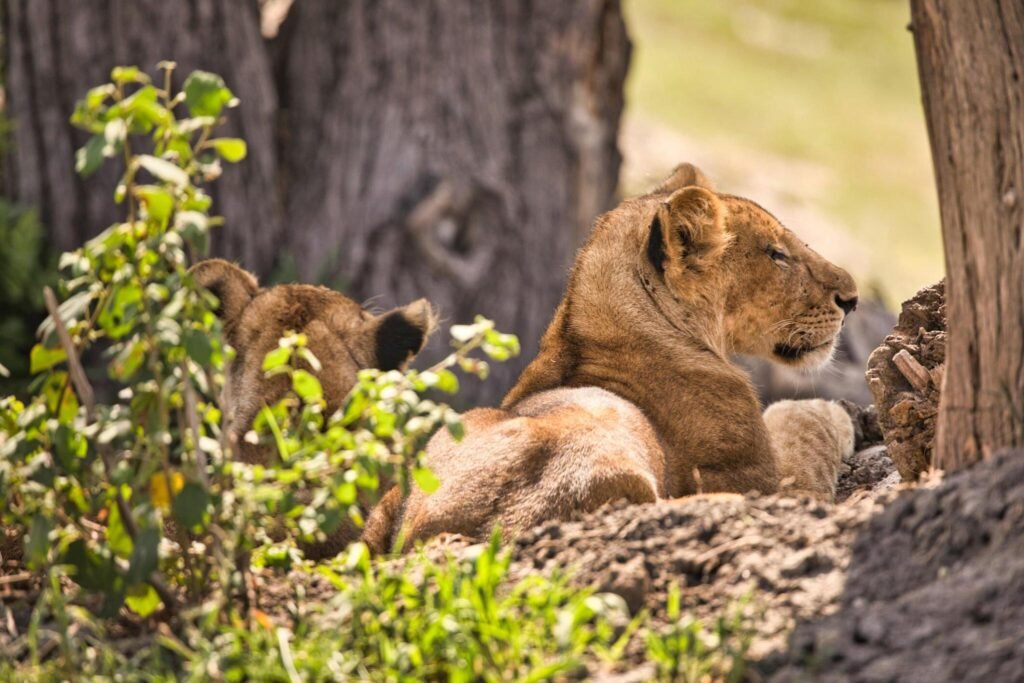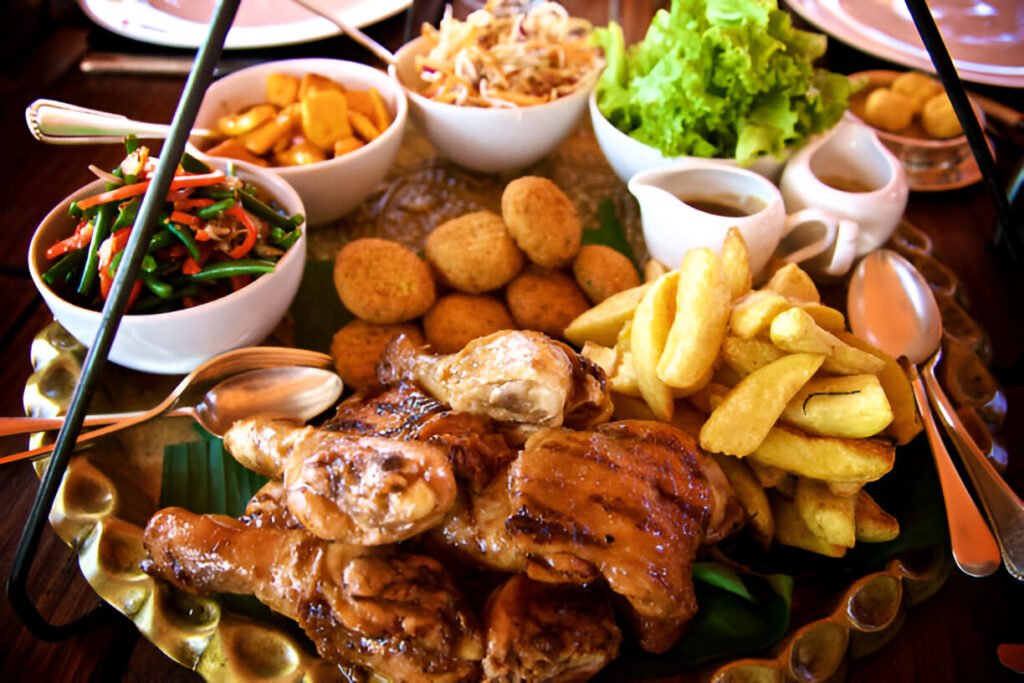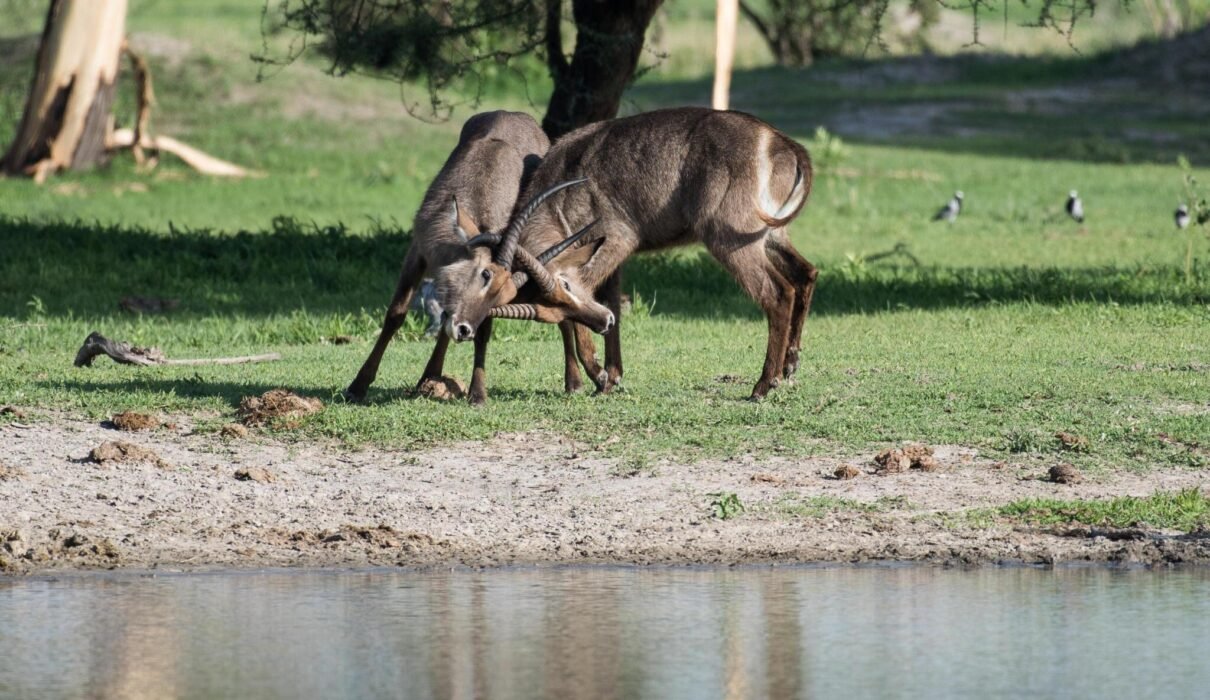Basic Swahili Phrases for Your Tanzania Safari : Traveling to Tanzania for a safari is an unforgettable experience, and learning a few basic Swahili phrases can make your trip even more enjoyable. Swahili, or Kiswahili, is the national language of Tanzania, and speaking a few words can help you connect with locals, show respect for the culture, and enhance your overall safari experience. This guide covers essential Swahili phrases that will come in handy during your safari adventure

Basic Swahili Phrases for Your Tanzania Safari : Why Learn Basic Swahili for Your Tanzania Safari?
While many people in Tanzania speak English, especially in the tourism industry, learning a few words of Swahili will enrich your experience and make it more immersive. Locals greatly appreciate when visitors try to speak their language, even if it’s just simple greetings or polite phrases. Plus, understanding basic Swahili can be useful in markets, restaurants, and when interacting with your safari guides and local communities
Basic Swahili Phrases for Your Tanzania Safari : Greetings and Polite Phrases
Greetings are an important part of Tanzanian culture. People often greet each other with respect, and starting a conversation without greeting can be considered rude. Here are some common Swahili greetings you can use:
- Jambo – Hello
- Habari – How are you?
- Nzuri – I’m good (response to “How are you?”)
- Asante – Thank you
- Karibu – Welcome
- Tafadhali – Please
- Pole pole – Slowly (often used when requesting something to be done carefully)
Knowing these simple phrases can make interactions with locals friendlier and more respectful.
Read more about Tanzanian culture and safaris
Basic Swahili Phrases for Your Tanzania Safari : Safari-Related Phrases
While on safari, you’ll hear and use certain Swahili words that are specific to wildlife and the safari experience. Here are a few essential safari-related Swahili phrases:
- Twiga – Giraffe
- Simba – Lion
- Tembo – Elephant
- Chui – Leopard
- Kifaru – Rhino
- Punda milia – Zebra
- Mto – River
- Mlima – Mountain
- Safari – Journey
Using these words while on a game drive can enhance your understanding and connection with the wildlife around you
Basic Swahili Phrases for Your Tanzania Safari : Numbers and Directions
Knowing basic numbers and directions can help when navigating markets, negotiating, or simply understanding distances during your safari. Here are some helpful Swahili numbers and directional phrases:
- Moja – One
- Mbili – Two
- Tatu – Three
- Tano – Five
- Kumi – Ten
- Kushoto – Left
- Kulia – Right
- Mbali – Far
- Karibu – Near
These phrases can be useful when interacting with your safari guide or asking for directions in towns.
Explore Tanzanian safaris with top guides
Basic Swahili Phrases for Your Tanzania Safari : Common Questions and Answers
While on your safari, you’ll likely need to ask basic questions in Swahili. Here are some handy Swahili questions and answers:
- Unaitwa nani? – What is your name?
- Ninaitwa… – My name is…
- Hii ni nini? – What is this?
- Gari linaenda wapi? – Where is the car going?
- Choo kiko wapi? – Where is the bathroom?
- Ndiyo – Yes
- Hapana – No
These phrases will help you navigate daily conversations with locals and your safari guides.
Basic Swahili Phrases for Your Tanzania Safari : Food and Drink Phrases
If you’re exploring local restaurants or trying traditional Tanzanian dishes during your safari, it’s helpful to know a few Swahili food and drink phrases:
- Chakula – Food
- Kunywa – Drink
- Nina njaa – I’m hungry
- Nina kiu – I’m thirsty
- Samahani, menu tafadhali – Excuse me, the menu, please
- Maji – Water
- Chai – Tea
- Kahawa – Coffee
- Naweza kupata? – Can I get…?
Knowing these phrases can make dining a more enjoyable and immersive experience.
Learn more about Tanzanian cuisine and safaris
Basic Swahili Phrases for Your Tanzania Safari : Emergency Phrases
While it’s unlikely you’ll face an emergency on your safari, it’s always good to be prepared with basic Swahili emergency phrases:
- Naomba msaada – I need help
- Daktari – Doctor
- Ni dharura – It’s an emergency
- Nimepotea – I’m lost
- Wapi hospitali? – Where is the hospital?
- Simu ya dharura – Emergency phone
Having these phrases at hand will provide you with peace of mind while exploring remote areas of Tanzania.
Basic Swahili Phrases for Your Tanzania Safari : Respect and Cultural Phrases
Showing respect for local culture is important when visiting Tanzania. Here are some Swahili phrases that convey politeness and respect:
- Shikamoo – A respectful greeting for elders
- Marahaba – The response to “Shikamoo”
- Pole – Sorry (used to express empathy)
- Pole na safari – Safe travels
- Kwaheri – Goodbye
- Nashukuru – I appreciate it
These phrases will help you express respect and gratitude during your interactions with locals, especially in rural or traditional communities.
Explore cultural safaris in Tanzania
Basic Swahili Phrases for Your Tanzania Safari : Useful Phrases for Shopping
Tanzania has many vibrant markets where you’ll want to buy souvenirs or gifts. Here are some useful Swahili phrases for shopping:
- Bei gani? – How much does it cost?
- Punguza bei tafadhali – Please reduce the price
- Ghali sana – It’s too expensive
- Naweza kuona? – Can I see it?
- Nitachukua – I’ll take it
- Sina pesa – I don’t have money
These phrases will come in handy when you’re bargaining in local markets or buying crafts from artisans.
Basic Swahili Phrases for Your Tanzania Safari : Basic Safari Etiquette Phrases
Respecting the wildlife and following park rules is key to an enjoyable safari. Here are some basic etiquette phrases that can be helpful during your safari:
- Usipige kelele tafadhali – Please don’t make noise
- Tafadhali usiguswe – Please don’t touch
- Usikaribie sana – Don’t get too close
- Tazama simba! – Look, a lion!
- Hakuna haraka – No hurry (a common Swahili phrase to remind you to relax and enjoy the moment)

Basic Swahili Phrases for Your Tanzania Safari : FAQs
1. Is it necessary to speak Swahili on a Tanzania safari?
While it’s not essential, learning basic Swahili will make your trip more enjoyable and help you connect with locals. English is widely spoken in tourist areas, but Swahili phrases will enhance your experience.
2. Will my safari guides speak English?
Yes, most safari guides in Tanzania are fluent in English and can help you with any translations. However, using a few Swahili phrases will show respect and add to the authenticity of your adventure.
3. Is Swahili hard to learn?
Swahili is considered one of the easier African languages to learn. Its grammar is straightforward, and many words are borrowed from English and Arabic, making it relatively simple to pick up basic phrases.
Basic Swahili Phrases for Your Tanzania Safari : Ready for Your Tanzania Safari?
Learning a few basic Swahili phrases can enhance your Tanzania safari experience by helping you connect with locals, show respect for the culture, and enjoy more meaningful interactions. Whether you’re greeting your guide, ordering food, or bargaining at a market, Swahili will open doors to unforgettable experiences in Tanzania.
Plan your Swahili safari with Kilimanjaro Climb Specialist
Book your ultimate safari adventure with Eddy Tours Safaris

